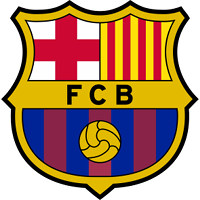Real Madrid were triumphant in Sunday’s Clasico against Barcelona, a result which pushed them back to the top of La Liga, but this match felt like a watershed moment for what was once the defining clash of European football.
Since the beginning of the Pep Guardiola era in 2008, the Clasico represented the pinnacle of football; world class players in every position, with every meeting feeling significant and seismic. Their battles defined the outcome of tournaments and their impact could be felt far beyond the border of Spain.
READ MORE:
⚽ Clasico Star Man: Dani Carvajal the standout player
⚽ Frenkie De Jong is being held back from his Barcelona destiny
⚽ Barcelona match stats, player stats, fixtures, results, FC Ratings
⚽ Real Madrid match stats, player stats, fixtures, results, FC Ratings
But, like their toothless meeting at Camp Nou in December, this turgid tussle couldn’t even define a tournament in which they are the only two combatants.
The action was chaotic and, largely, watchable, but without the sense of quality from a pair of teams strangely equal in their total dysfunction.
Madrid have old heads plus works in progress, none more so than Vinicius Jnr who, for much of the contest, chose the wrong option each and every time. He passed when he should have shot, shot when he should have passed, ran forward when he should have cut back, and didn’t challenge the pace of the defence when the chance was screaming out to do so. Yet he made the difference when it mattered, gambling in behind and forcing Gerard Pique - a regular feature of the contest - to dive in front of his attempted shot/cross, with the result deflecting into the net. Mariano’s clincher in injury time was also flawed, the substitute’s finish bounding over the prone Marc-Andre Ter Stegen from a tight angle. The combined xG of both goals was 0.13, and not because they were anything special, rather that both were utterly avoidable. The game got the goals it deserved.
Pique said afterwards, through no loss of irony, that Real Madrid’s first half performance was ‘one of the worse he had seen at the Bernabeu’, while Sport, the leading Catalan-based newspaper, proclaimed that this was a match between ‘two teams who no longer dominate in Europe, and can barely dominate each other’, adding that ‘Setien’s Barcelona suffered a mental and physical collapse from the 50 minute mark’.
Irrespective of who is saying what, the general feeling in Spain - both before and after the contest - was to be deeply negative on the prospects of both of these teams and it isn’t hard to see why.
Barcelona’s performance lacked any kind of identity, as it has done for some time. Quique Setien’s passing carousel may have been coveted by fans but it is getting the team (literally) nowhere fast. They made 150 passes more than Madrid but averaged 71.5 passes per shot as opposed to Madrid’s 37.5. There was zero penetration. Yes, they had a superior xG to Madrid - 1.6 to 1.1 - but much of it was tied up in two moments: Pique’s flashed header over the crossbar near the end, and Messi testing Courtois with a first-half, comfortable, save. Madrid were only forced into 12 clearances - the second lowest of the round in La Liga. They were relaxing, watching the passing show play out in front of them.
Because Madrid - like everyone else - know that if Messi is not engaged, Barcelona are a feeble offensive threat.
For the last three months Messi has been directly involved, via converting or assisting, in 61% of Barcelona’s goals. And when he suffers one of his worst games at Bernabeu in recent memory, Barca coalesce into an eminently inferior prospect. His pass completion was 95% - not a good thing. It meant he was playing safe, distributing responsibility to others, and generally, allowing the game to completely pass him by. Messi largely sleep-walked throughout; when the one clear opportunity came in the second half, he was slow off the mark and allowed Marcelo to chase him down. He appeared, mentally, to be in another neighbourhood from what was going on.
The wider facts on Barca are also immediately clear. A 33-year-old Gerard Pique kept the score down, despite his involvement in Vinicius’ goal. The Arturo Vidal experiment in a pseudo-4-4-2 can probably end right now. Antoine Griezmann continues to work hard going backwards but dances on the periphery of every match he plays, feigning interjection rather than providing the kind of incision that £110m should provide.
And Frenkie De Jong is being made to operate in a role foreign to him while Sergio Busquets still occupies the position that should have been his destiny. No-one can say that this is working, and while other options include a suspect Arthur and an over-the-hill Ivan Rakitic, Setien isn’t likely to change much given the lack of options. In fairness to the shellshocked coach, he has been drafted into a club so bereft of ingenuity and ideas that it’s grossly unfair to lay blame at his door. There are just too many players not contributing enough to the cause. Maybe they just aren’t good enough to play for Barcelona.
There’s a few Madrid faces whose time may be coming to an end, too. Marcelo, despite playing well, is unlikely to last beyond the end of the season, while Ramos, 34 at the end of this month, should focus more on defending than attempting to be the match-winner. The team in general is stale and needs a refresh and in this case, despite Madrid’s savvier and more tactically astute approach, it led to a pretty awful spectacle.
Because over and above the proficiency of the players involved, the intensity of the occasion - on the pitch, at least - felt reduced. After years of main event players, too many of the supporting cast were bit-part actors, and it should be a worry for Spain’s big two. The marketability of La Liga rests on the shoulders of these two buying good players and building good teams. That isn’t the case at the moment, and it feels like the first Clasico downturn for a decade and a half.














